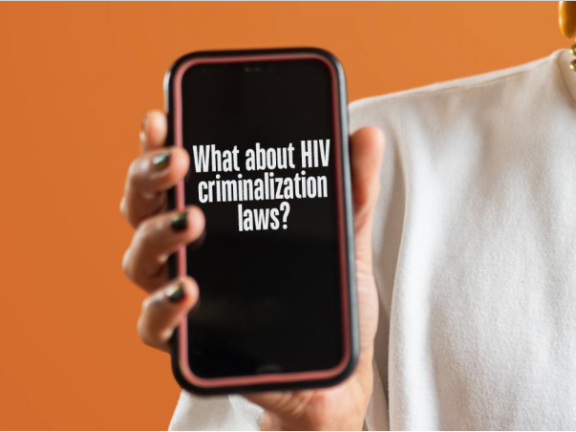CHLP Authors Letter to The Ethicist in Response to Irresponsible Claims

On February 5, 2025, CHLP Senior PJP Attorney Jada Hicks wrote a letter to The Ethicist regarding a subscriber's email on February 3, 2025, with a letter entitled “Good in Bed: The Ethicist Answers Your Sex Questions, Part 2: I'm HIV Positive but Undetectable, Do Casual Partners Need to Know?" CHLP's letter requested The Ethicist correct the inaccurate and dangerous advice because people living with HIV who are undetectable are routinely prosecuted, incarcerated, and placed on sex offense registries after being accused by former partners of exposure.
On February, 19, 2025, Positively Aware magazine wrote about how response letters written by CHLP and SERO have not been acknowledged by the Times. Read: Why didn’t the New York Times’ ‘Ethicist’ columnist mention HIV criminalization laws when he gave advice?
On February 20, 2025, the Times responded with an editor's note about our requested correction and added a paragraph to the response.
Editors’ Note: Feb. 20, 2025
After this column was published, thoughtful readers alerted us to the complex legal ramifications of nondisclosure of H.I.V. status. In some states, people who are living with H.I.V. can be criminalized if they don’t disclose their positive status before a sexual encounter. These circumstances may well be important considerations for people living with H.I.V., and should have been included in the original column. The column has been updated to note the existence of these laws.
The text of CHLP's letter is below.
February 5, 2025
Dear The Ethicist,
My name is Jada Hicks and I am a Senior Positive Justice Project Attorney at the Center for HIV Law and Policy (CHLP). The Positive Justice Project (PJP) is a national campaign to end the criminalization of HIV and other stigmatized health conditions. We work with state advocates and organizers to reform outdated HIV criminal laws that do not reflect the current risks, routes, and realities of HIV transmission and exposure.
I am writing about a response sent in a subscriber's email on February 3, 2025, entitled “Good in Bed: The Ethicist Answers Your Sex Questions, Part 2: I'm HIV Positive but Undetectable. Do Casual Partners Need to Know?" The answer you posted is not only inaccurate but dangerous.
The article claims that people living with HIV do not need to volunteer their status in “casual encounters.” This is simply untrue and fails to acknowledge the realities of HIV criminalization laws in many jurisdictions. In many states, failure to disclose an HIV diagnosis before sex—regardless of actual transmission risk—can lead to severe legal consequences, including criminal prosecution, felony-level punishments, incarceration, or sex offense registration. This advice could put people living with HIV at legal risk, whether they are undetectable or not, and needs to be corrected.
The case of Michael Johnson illustrates how HIV criminal laws apply even to casual encounters. Michael used dating apps to find sexual partners (“casual encounters”) and was convicted and initially sentenced to 30 years in prison. Please see:
- He Emerged From Prison a Potent Symbol of H.I.V. Criminalization
https://www.nytimes.com/2019/07/14/us/michael-johnson-hiv-prison.html
There are countless other instances of people serving time in jail and on sex offense registries when accused by a former partner of non-disclosure.
- ‘I lost my retirement, my career, my home’: the Americans imprisoned for being HIV-positive
https://www.theguardian.com/us-news/2022/nov/30/hiv-criminal-laws-us-aids-discrimination
I strongly urge you to issue a retraction and clarify that our legal system does not treat HIV like “other S.T.I.s.” and that people living with HIV could face criminal prosecution for failing to disclose their positive HIV status to any sexual partner, regardless of whether it is a casual encounter or a long-term partner.
People rely on your column to provide good advice but you could be directly responsible for the harm caused to them if they rely on this inaccurate information.
I am happy to answer any questions you may have.
Jada Hicks
Senior PJP Attorney, CHLP